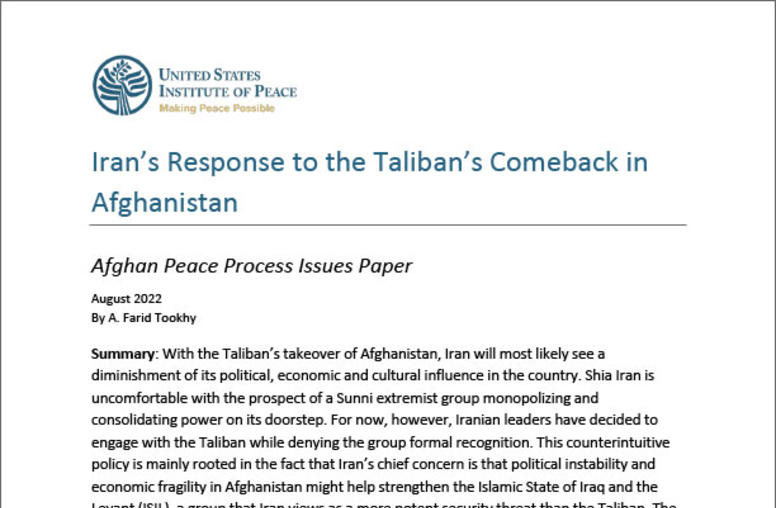
A. Farid Tookhy, “Iran’s Response to the Taliban’s Comeback in Afghanistan”
This paper seeks to analyze the drivers and implications of Iran’s response to the Taliban’s return to power in Afghanistan.
Afghanistan is a landlocked country — surrounded by difficult neighbors — with rugged terrain and poor infrastructure. The state has been heavily dependent on foreign assistance for most of its modern existence, and since 2001 has relied on aid to sustain the government, provide services, fund security forces and encourage private enterprise. The lack of international recognition, the suspension of development and military aid, and continuing counter-terrorism sanctions severely limit the Taliban government’s ability to run a viable economy.
The papers in this collection explore regional geopolitics and the political economy of international aid, with an eye to lessons learned from the past two decades and to questions regarding how international actors can pursue counterterrorism and humanitarian goals in Afghanistan without legitimizing or enabling the worst inclinations of the Taliban regime.

This paper seeks to analyze the drivers and implications of Iran’s response to the Taliban’s return to power in Afghanistan.
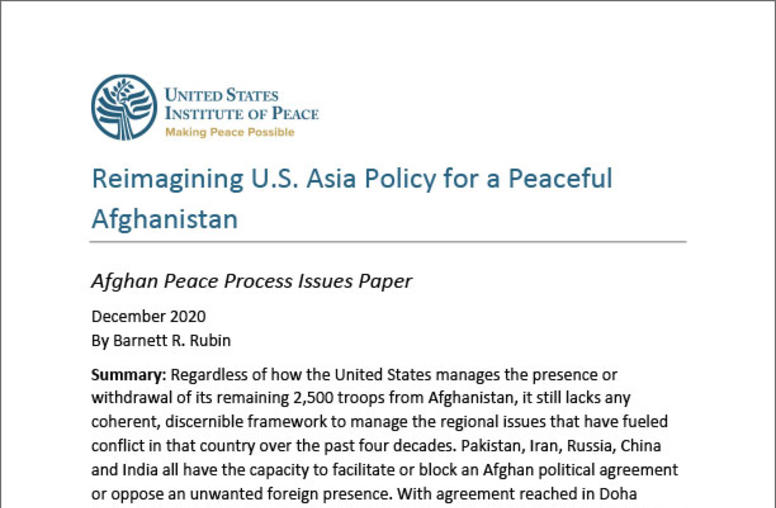
The Afghan peace process provides the United States an opportunity to pivot to a strategy that frees it from dependence on military bases and can provide an entry point to a more effective Asia policy focused on the most vital global threats.
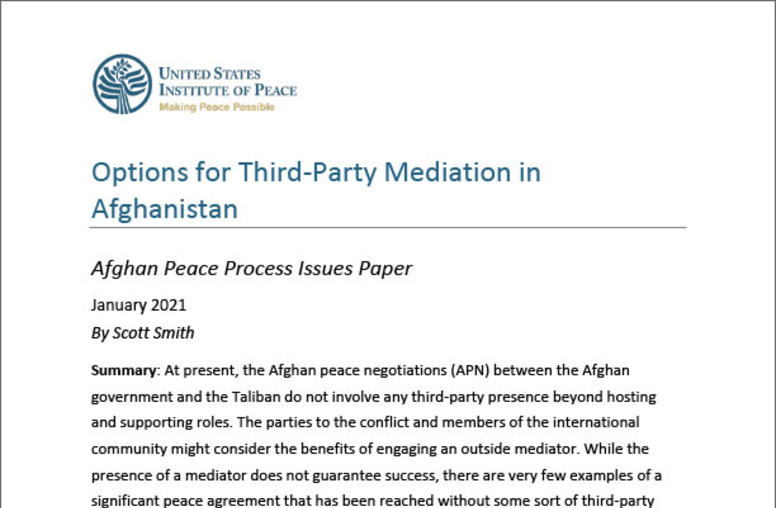
This memo considers the possible functions a mediator might serve, the characteristics of an individual who might be well-suited for this role and options through which such an individual might be recruited and engaged to join the peace process.
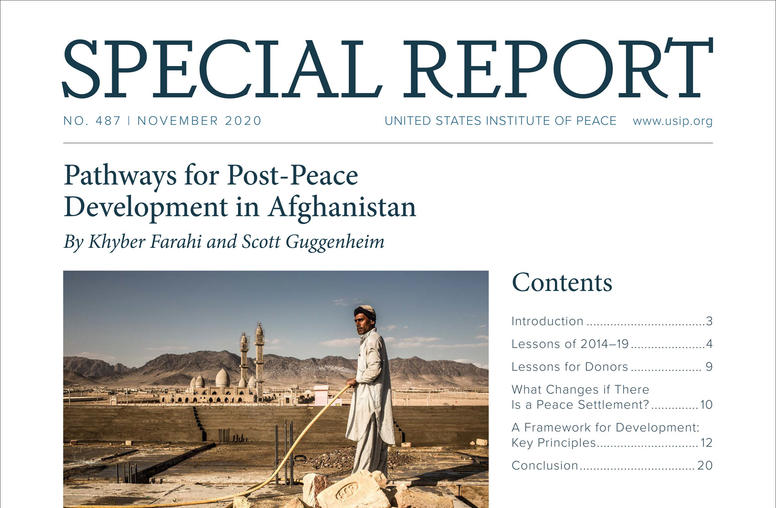
This report, based on an examination of Afghanistan’s recent development performance, provides a framework for how the Afghan government and its donor partners can more effectively deliver equitable development.
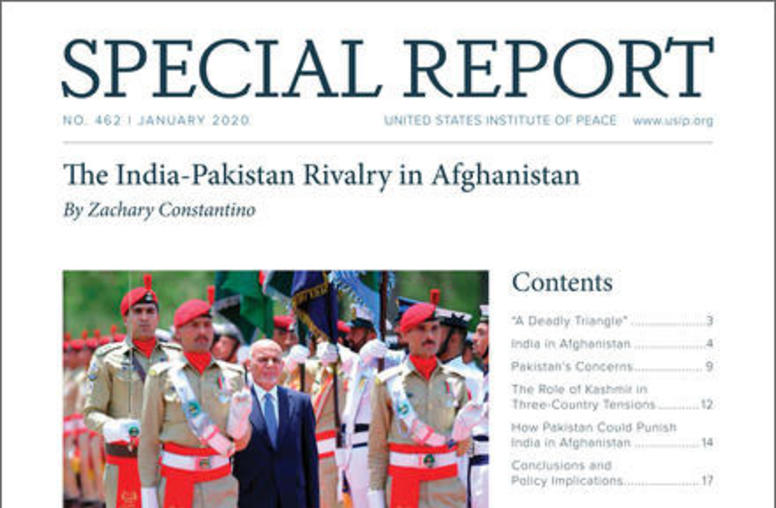
This report examines the interests and strategies of both countries in Afghanistan within the context of peace negotiations and developments in Kashmir.
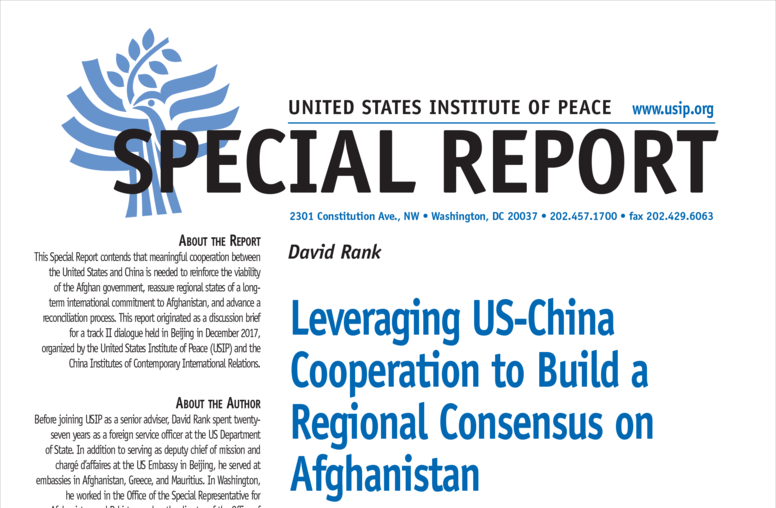
This report contends that meaningful cooperation between the United States and China is urgently needed to repair the frayed regional consensus on Afghanistan and set the country on a path to reconciliation and stability.
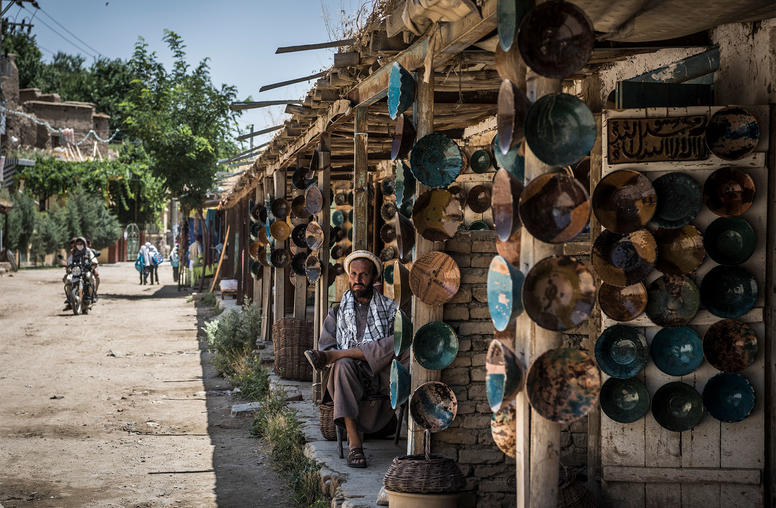
The quadrennial international donor conference for Afghanistan was largely shaped by the pitfalls and roadblocks forecasted when the event was publicly announced. Yet amid the unsatisfying results, some hopeful rays broke through.